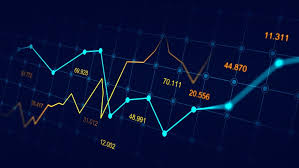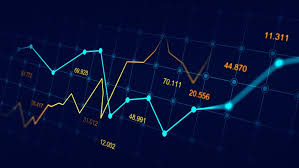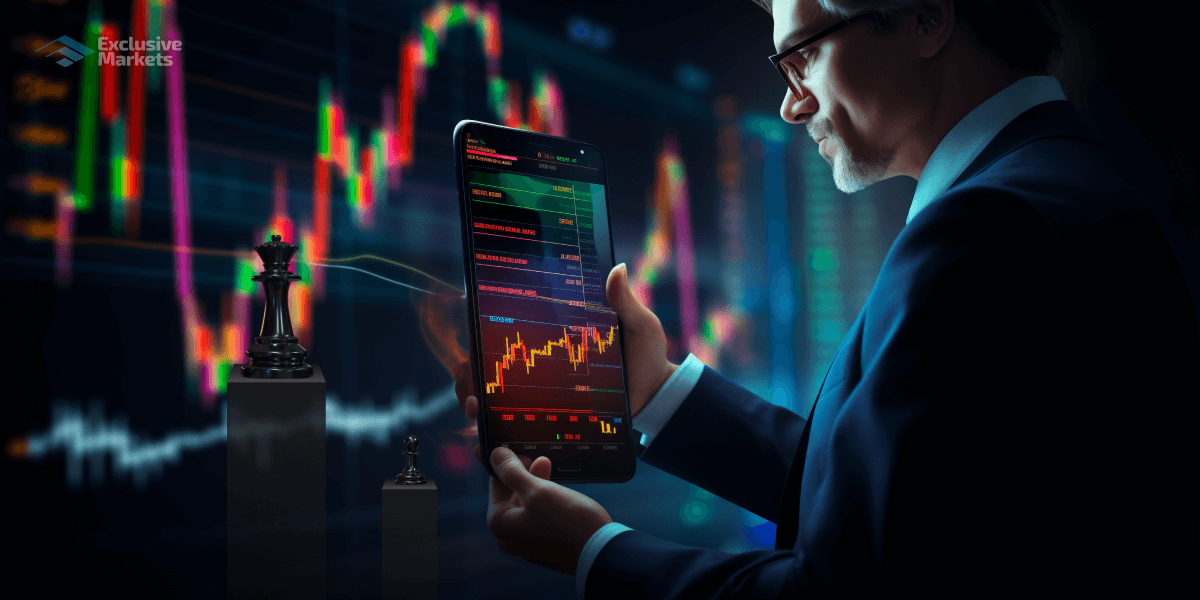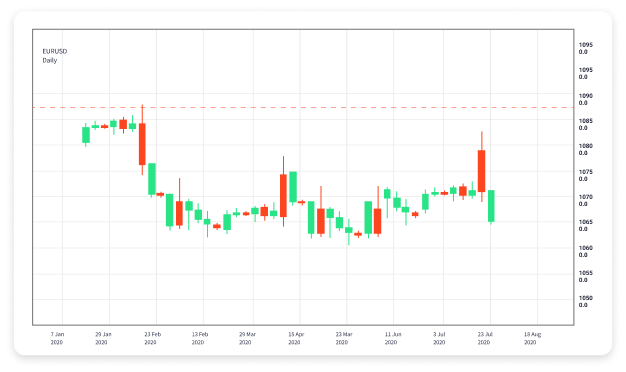bating9

Mastering Forex Trading Practice: Strategies and Techniques
Forex trading is a vast and dynamic field that requires both theoretical knowledge and practical experience. To succeed in this highly competitive sector, traders need to develop a disciplined approach and a well-thought-out trading strategy. Whether you are a beginner learning the ropes or an experienced trader looking to refine your skills, the importance of forex trading practice cannot be overstated. One of the best ways to gain hands-on experience without financial risk is to leverage demo accounts offered by platforms like forex trading practice Qatar Brokers. In this article, we will explore essential aspects of forex trading practice, including effective strategies and risk management techniques.
Understanding Forex Trading
Forex, short for foreign exchange, involves buying and selling currencies with the aim of making a profit. The forex market is decentralized and operates 24 hours a day, allowing traders from all over the world to participate. With daily trading volumes exceeding $6 trillion, it is the largest financial market in the world. The currency pairs, such as EUR/USD or GBP/JPY, reflect the value of one currency against another. Understanding how to read these pairs is fundamental for successful trading.
The Importance of Practice
Just like any other skill, mastering forex trading takes time and perseverance. Practice plays a critical role in developing the necessary skills and understanding the market dynamics. Many new traders make the mistake of jumping straight into live trading with real money before they fully grasp how the market works. This can lead to significant financial losses. By using a demo account, you can practice your trading strategies, understand how to analyze the market, and learn how to manage emotional responses to winning and losing trades without any financial risk.
Utilizing Demo Accounts
Demo accounts are provided by most forex brokers and allow traders to practice in a simulated environment that mirrors real market conditions. You can execute trades, test strategies, and learn about market analysis and technical indicators. The key advantages of using demo accounts include:
- No Financial Risk: You can learn and practice without risking your own capital.
- Real Market Conditions: Demo accounts operate using real-time data, so you can experience how market events affect prices and trading opportunities.
- Strategy Development: Test different trading strategies and find the ones that work best for you.
- Discipline and Patience: Practice helps you develop the discipline needed to adhere to your trading plan and manage emotions.

Developing a Trading Strategy
A solid trading strategy acts as your roadmap in the forex market. It defines when to enter and exit trades, how much to risk, and the conditions that must be met before executing a trade. Here are some steps to develop your own trading strategy:
- Set Your Goals: Define what you want to achieve—whether it’s steady income or long-term capital growth.
- Choose Your Trading Style: Day trading, swing trading, positional trading; understand which style suits your personality and lifestyle.
- Market Analysis: Use technical and fundamental analysis to identify trading opportunities.
- Risk Management: Determine how much capital you are willing to risk on a single trade.
- Backtest Your Strategy: Use historical data to evaluate the effectiveness of your strategy.
Risk Management Techniques
Risk management is crucial in forex trading. The high leverage available in forex can lead to significant gains, but it can also result in substantial losses. Here are some risk management techniques:
- Set Stop-Loss Orders: A stop-loss order is a predetermined price at which you will exit a losing trade. This helps to limit potential losses.
- Position Sizing: Determine the amount of capital to risk on each trade based on your overall account size and risk tolerance.
- Diversification: Avoid putting all your capital into a single trade. Diversifying your trades across different currency pairs can reduce risk.
- Keep Emotions in Check: Emotional trading can lead to impulsive decisions. Stick to your trading plan and avoid overreacting to market fluctuations.
Continuous Learning and Adaptation
The forex market is constantly evolving. To remain successful, traders must be willing to learn and adapt. Here are some methods to enhance your trading knowledge:
- Educational Resources: Participate in webinars, read books, and follow reputable financial news sources.
- Join Trading Communities: Engage with other traders in forums or social media groups to share experiences and strategies.
- Keep a Trading Journal: Document your trades, strategies, and any lessons learned to track your progress and improve over time.
Conclusion
Forex trading is a multifaceted endeavor that combines both skill and strategy. By focusing on practice and embracing the use of demo accounts, traders can cultivate their abilities without financial pressure. It’s crucial to develop a comprehensive trading strategy, incorporate effective risk management techniques, and commit to ongoing education. As with any skill, mastery takes time and effort, but with the right approach, you can enhance your forex trading practice and work toward becoming a successful trader.

Forex Currency Trading Brokers: A Comprehensive Guide
Forex trading has gained immense popularity over the years, thanks in large part to the accessibility of online platforms. Selecting the right forex currency trading broker protradinguae.com broker can significantly impact your trading experience and success. In this guide, we aim to provide you with essential insights into the world of forex brokers, the factors to consider when choosing one, and tips that can enhance your trading strategies.
What is Forex Trading?
Foreign exchange trading, or forex trading, involves the exchange of one currency for another. It is one of the largest financial markets in the world, with trading volumes exceeding $6 trillion daily. Traders engage in forex to profit from fluctuations in currency values, seeking to buy low and sell high.
Importance of Forex Brokers
Forex brokers play a crucial role in facilitating trades between buyers and sellers. They serve as intermediaries, providing a platform for traders to access the forex market. Additionally, brokers offer various tools and resources that can aid in making informed trading decisions, including:
- Trading Platforms: Most brokers provide proprietary or third-party trading platforms that equip traders with advanced analysis tools and an interface to execute trades.
- Leverage: Brokers offer leverage, which allows traders to control larger positions than their actual capital would permit. While this can amplify profits, it also increases the risks.
- Research and Education: Many brokers offer educational resources, such as webinars, articles, and tutorials, to help traders enhance their skills and knowledge.
- Customer Support: A reliable support team is essential for addressing issues and providing assistance during trading hours.
Types of Forex Brokers
Forex brokers can be categorized based on their operations, and understanding these categories is vital when selecting the right broker for your trading needs:
- Dealing Desk (DD) Brokers: These brokers act as market makers, determining the buy and sell prices. They often offer fixed spreads and may have conflicts of interest since they profit from trader losses.
- No Dealing Desk (NDD) Brokers: NDD brokers connect traders to liquidity providers, offering variable spreads that reflect real market conditions. They can be divided into:
- STP (Straight Through Processing): Orders are executed directly in the interbank market, allowing for fast execution and better pricing.
- ECN (Electronic Communication Network): ECN brokers provide direct access to multiple liquidity providers, offering the tightest spreads and fastest execution times.
Choosing a Forex Broker
Selecting the right broker requires careful consideration of several factors:

1. Regulation
Ensure the broker is regulated by reputable financial authorities, such as the FCA (UK), ASIC (Australia), or NFA (USA). Regulation provides confidence that the broker adheres to strict financial standards.
2. Trading Costs
Different brokers have different fee structures, including spreads, commissions, and overnight fees. Compare these costs to understand how they will affect your profitability.
3. Trading Platforms
A user-friendly and powerful trading platform with advanced features can significantly improve your trading experience. Check if the broker offers widely used platforms, such as MetaTrader 4 or 5.
4. Customer Service
Efficient customer service is essential, especially for new traders. Evaluate the broker’s responsiveness, available communication channels, and support hours.
5. Available Currency Pairs
Check the variety of currency pairs the broker offers. A wider selection may provide more trading opportunities.
6. Leverage Options
Different brokers offer varying leverage options. Understand the risks associated with high leverage and choose a broker that aligns with your risk tolerance.

Forex Trading Strategies
With the right broker, you can implement various trading strategies to maximize your success:
1. Scalping
This short-term strategy involves making numerous trades throughout the day to capitalize on small price movements. Scalpers require a broker with fast execution speeds.
2. Day Trading
Day traders open and close positions within the same trading day, avoiding overnight exposure. A reliable broker with low spreads and fast execution is crucial for this strategy.
3. Swing Trading
Swing traders hold positions for several days or weeks, aiming to profit from price swings. This strategy requires a broker that supports technical analysis tools.
4. Position Trading
Position traders hold trades for extended periods, sometimes months, focusing on long-term trends. They often rely on fundamental analysis and require lower trading costs.
Final Thoughts
Choosing the right forex currency trading broker is essential for a successful trading experience. Consider factors like regulation, trading costs, and customer service when making your decision. With the right broker and a solid trading strategy, you can navigate the forex market with confidence and potentially achieve your financial goals.
